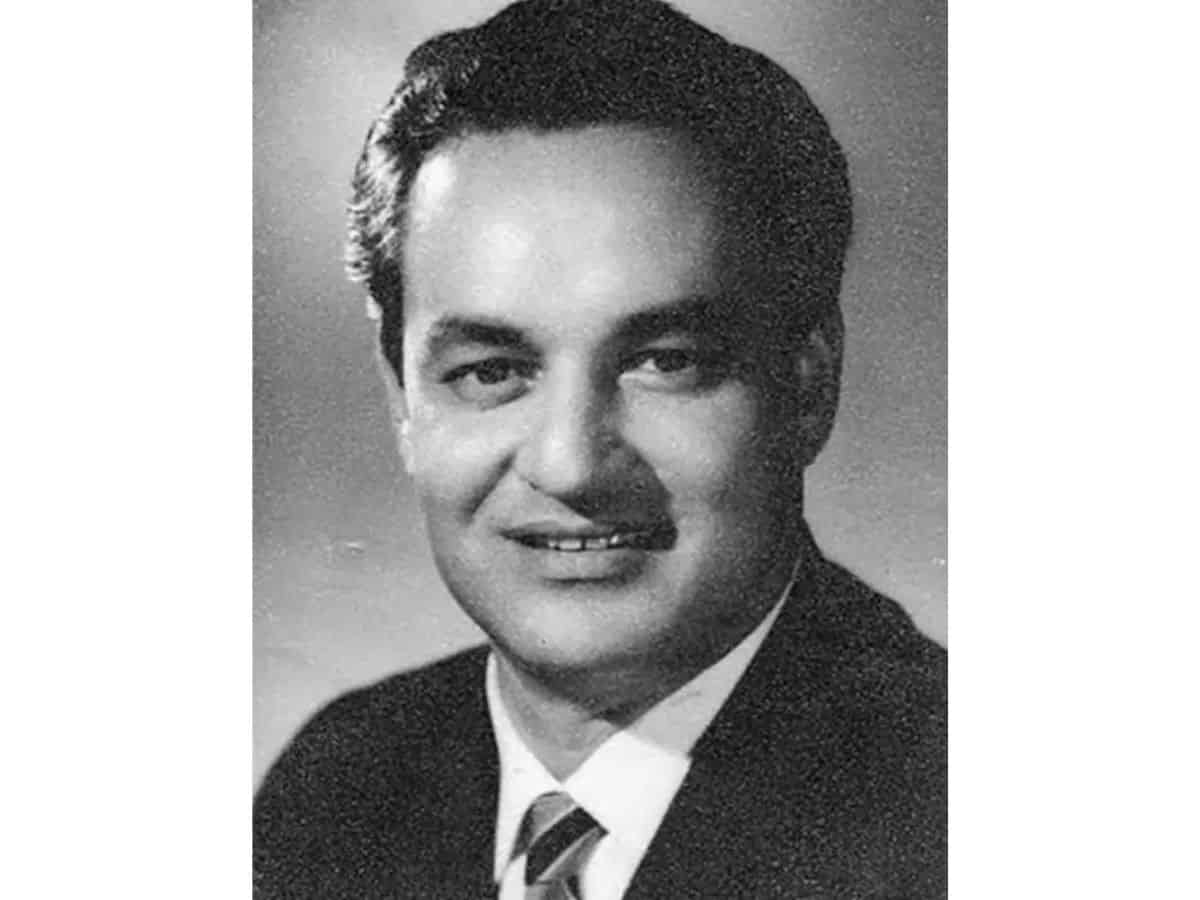
Jane kahan gaye woh Din,
Kehte the teri raah mein,
Nazron ko hum bichayenge,
Chahe kahin bhi tum raho,
Chahenge tumko umr bhar
Tumko na bhool payenge
The man who sang this immortal classic for Raj Kapoor in the film in the landmark movie Mera Naam Joker would have been 100 years old on 22nd July, 2023 had he been alive.
Mukesh Chand Mathur, better known just as Mukesh, was born in 1923 in Delhi in a large family comprising ten children. Among them he was the sixth. From childhood he had an uncanny knack and passion for music which he developed further by listening to the instructions of an Ustad who was teaching his elder sister.
The little boy, who sat near his sister and observed everything keenly, became one of the best known singers of Bollywood. His songs are still sung at musical gatherings, weddings and public functions. When it came to infusing emotion into philosophical lyrics and singing about deep despair and sorrow, there was nobody to beat Mukesh.
At his peak he had legions of fans and among them were some very well known figures. Cricketer B.S. Chandrasekhar was one of his ardent fans. Former Pakistan Prime Minister Benazir Bhutto was another. It was reported that she kept cassettes of his songs in her car whenever she was out on the campaign trail.
During his boyhood his idol was the famous K L Saigal and it followed naturally that Mukesh copied those emotional voice qualities from the master. He was excellent at replicating Saigal’s pathos.
It was the renowned music director Naushad who advised Mukesh to move away from copying Saigal. Naushad told him: “Saigal sahab is already occupying that slot. At best you will only end up being a duplicate. You should do something original.” Following Naushad’s words of advice Mukesh charted out his own path in the music world. Naushad gave him the task of singing four songs in the film Andaz made in 1949. From there his career took off.
What contributed largely to his success was the ease with which he could convey joy, love, sorrow and a variety of other emotions. Due to his versatility Mukesh became a highly sought after singer in the Hindi film industry.
But he preferred to sing sad songs. He told the BBC in an interview that if he was given a choice between singing 10 light songs or one sad song, he would choose the sad song. He excelled at sad songs like Dost dost na Raha, Pyar Pyar na Raha (Sangam) or Jab koyi tumhara Hriday tod de, Tadap ta hua jab tumhe chhod de (Purab Aur Paschim).
He became a regular in films by Raj Kapoor. The famous filmmaker who often made films carrying a message of love and brotherhood found a perfect singer in Mukesh. The two of them struck up a superb combination. The partnership resulted in some all time great songs like Aawara Hoon, Ya Gardish mein hoon, asman ka tara hoon” (Aawara), Mera joota hai Japani, Yeh patloon Englistani (Shree 420), Sajan re jhoot mat bolo, Khuda ke paas jana Hai (Teesri Kasam) and many more unforgettable gems. Even now each one of us has our favourite Mukesh songs.
Moreover, Mukesh had perfect diction and pronunciation. His precise articulation of the lyrics added to the feelings being expressed. Mukesh had the important ability to adapt his singing style to match the screen characters of the actors he was singing for whether it was Dilip Kumar, Raj Kapoor or Manoj Kumar.
Many of his songs became timeless and evergreen classics. Numerous awards and accolades were showered on him. His soulful renditions of songs in films like Kabhi Kabhie, Anari, and Anand (the memorable Kahin Door Jab Din Dhal Jaye, Saanjh ki dulhan badan churaye, Chupke se aye) continue to captivate listeners even today, securing his name and fame as one of the greatest playback singers in the Hindi film world.



